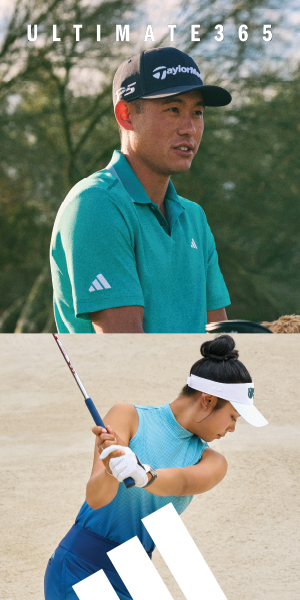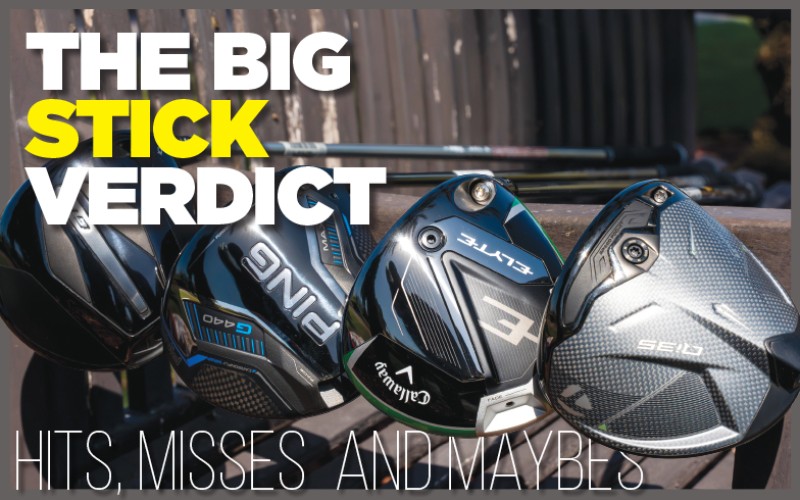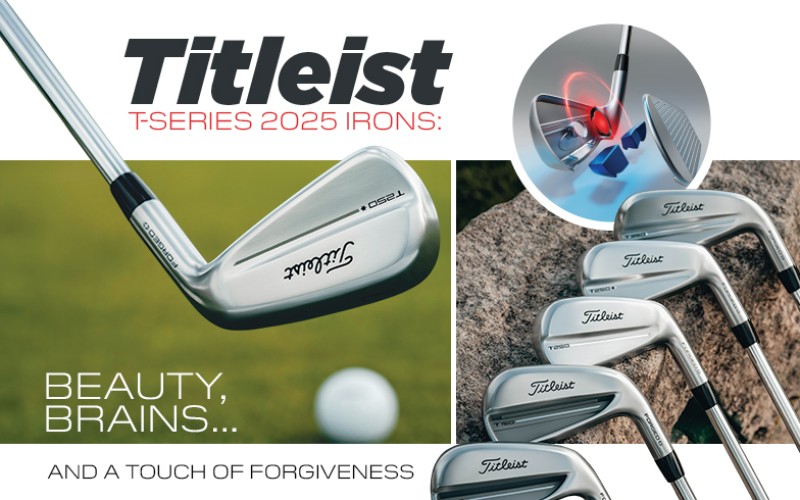Ping’s i-series irons have long been the go-to choice for Tour players and accomplished amateurs who want that elusive blend of a compact head shape with just enough forgiveness to keep the big numbers off the card. The likes of Viktor Hovland and Sahith Theegala still have trusty i210s tucked into their bags—a testament to how good Ping’s players’ cavity-back irons have been over the years.
With the new i240 irons, Ping is clearly aiming to keep that loyal fanbase engaged while nudging the design forward. Compared to the clean, understated look of the i230s, the i240s introduce some noticeable visual changes, including a section of exposed carbon fibre just under the topline and a pop of red paint fill in the “i” badging. While the look is more modern, it’s likely to split opinion among purists who prefer a simpler aesthetic.
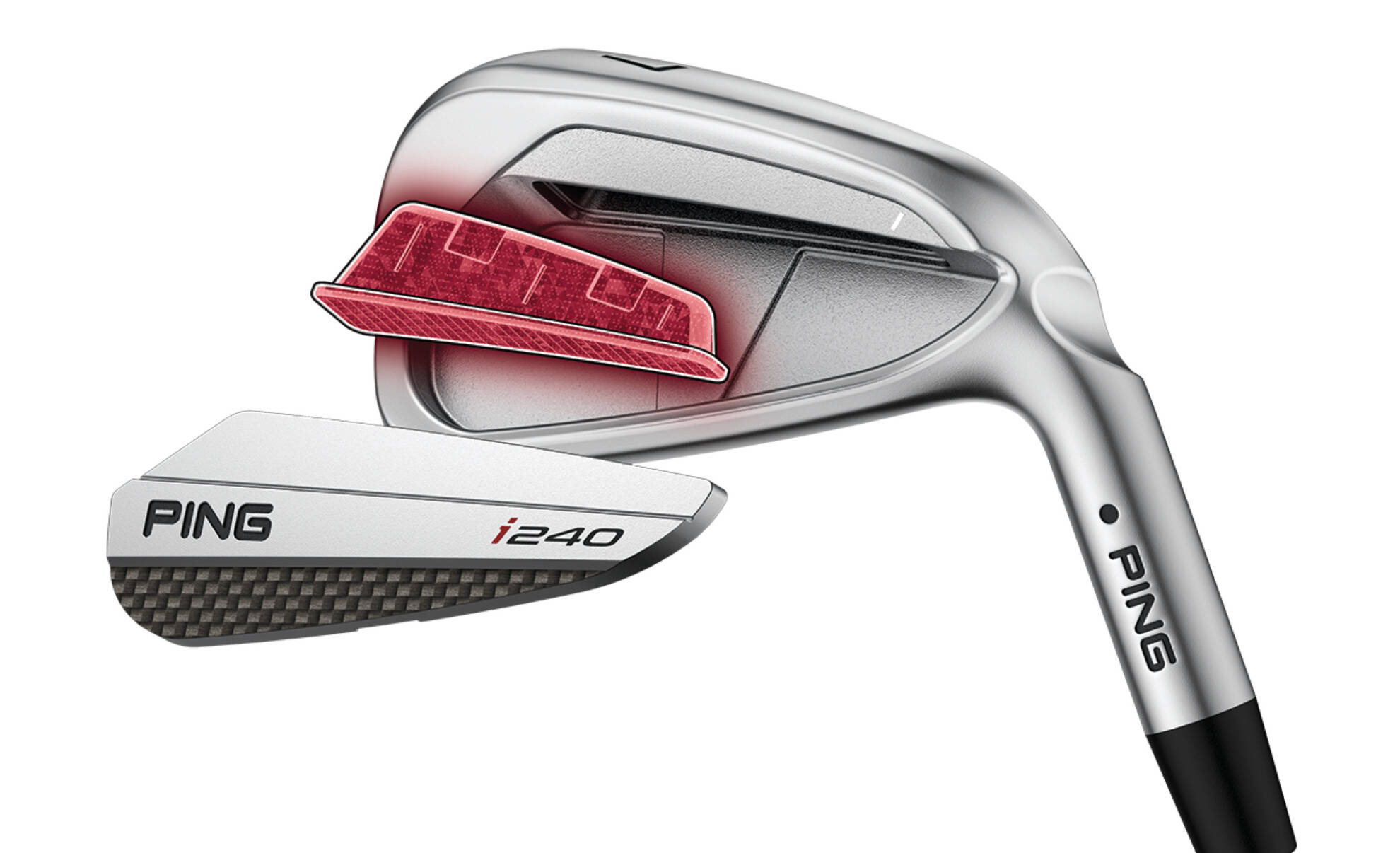
Shape and Feel
The head shapes remain reassuringly familiar, sitting somewhere between the current Blueprint S cavity-back and the i230. For players who like to blend sets, it’s an easy progression: i240 long irons for extra launch and forgiveness, then Blueprint S or even the muscle-back Blueprint T in the scoring clubs.
Where these irons really shine is feel. Ping has used an injection-moulded elastomer to create a softer impact sensation and a more muted sound—noticeably improved over previous generations. It’s subtle, but when you catch a pure strike, you’ll know it instantly.
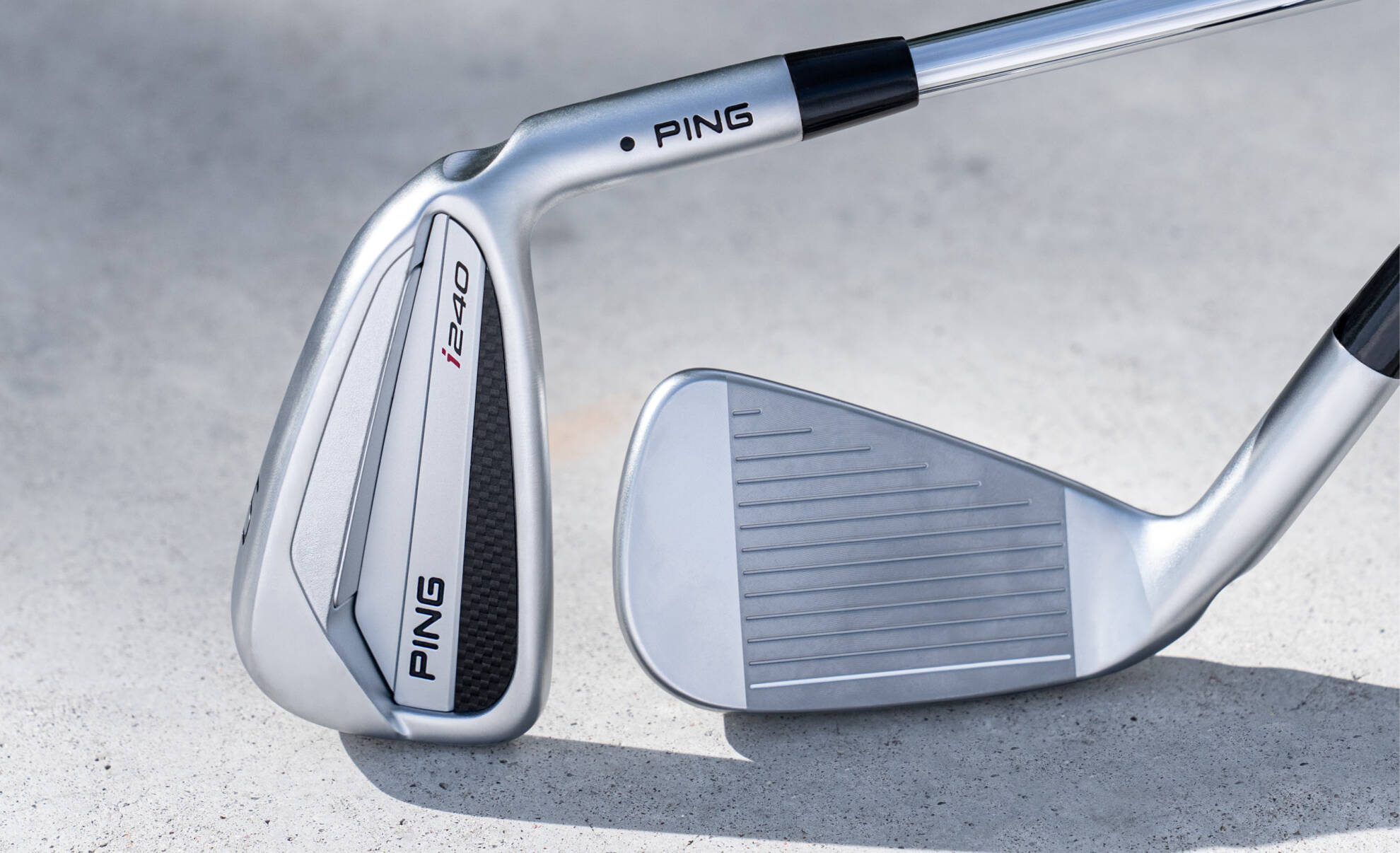
Performance Insights
Ping claims the i240 delivers an 11% tighter dispersion over the i230, however we didn’t have an identical-spec i230 set on hand to confirm that number. What we did see in testing was a clear performance bump in the long and mid irons. From the 5-iron through the 7-iron, shots launched higher and carried farther with a stronger, more penetrating flight—ideal if you want to hold greens from 180+ yards out.
Some of that forgiveness comes from clever weight savings. The cavity badge is 8.5 grams lighter, and Ping has redistributed that weight to boost MOI. On the course, the result feels confidence-inspiring—especially on slight mishits.
Loft Options
One of the standout features is Ping’s honest approach to lofts. Instead of sneaky jacked numbers, you can pick between three configurations:
• Standard: 7-iron at 33°
• Power Spec: 31.5°
• Retro Spec: 35°
It’s refreshing to see a brand give golfers the flexibility to gap their set properly, rather than playing a “7-iron” that’s effectively a 5.
Stock Shaft and Fit
The stock shaft is the Nippon N.S. Pro Modus Tour—a mid-launch option that will suit most players in this category. As always, we’d recommend getting custom-fitted, especially given the variety of loft and lie options on offer.
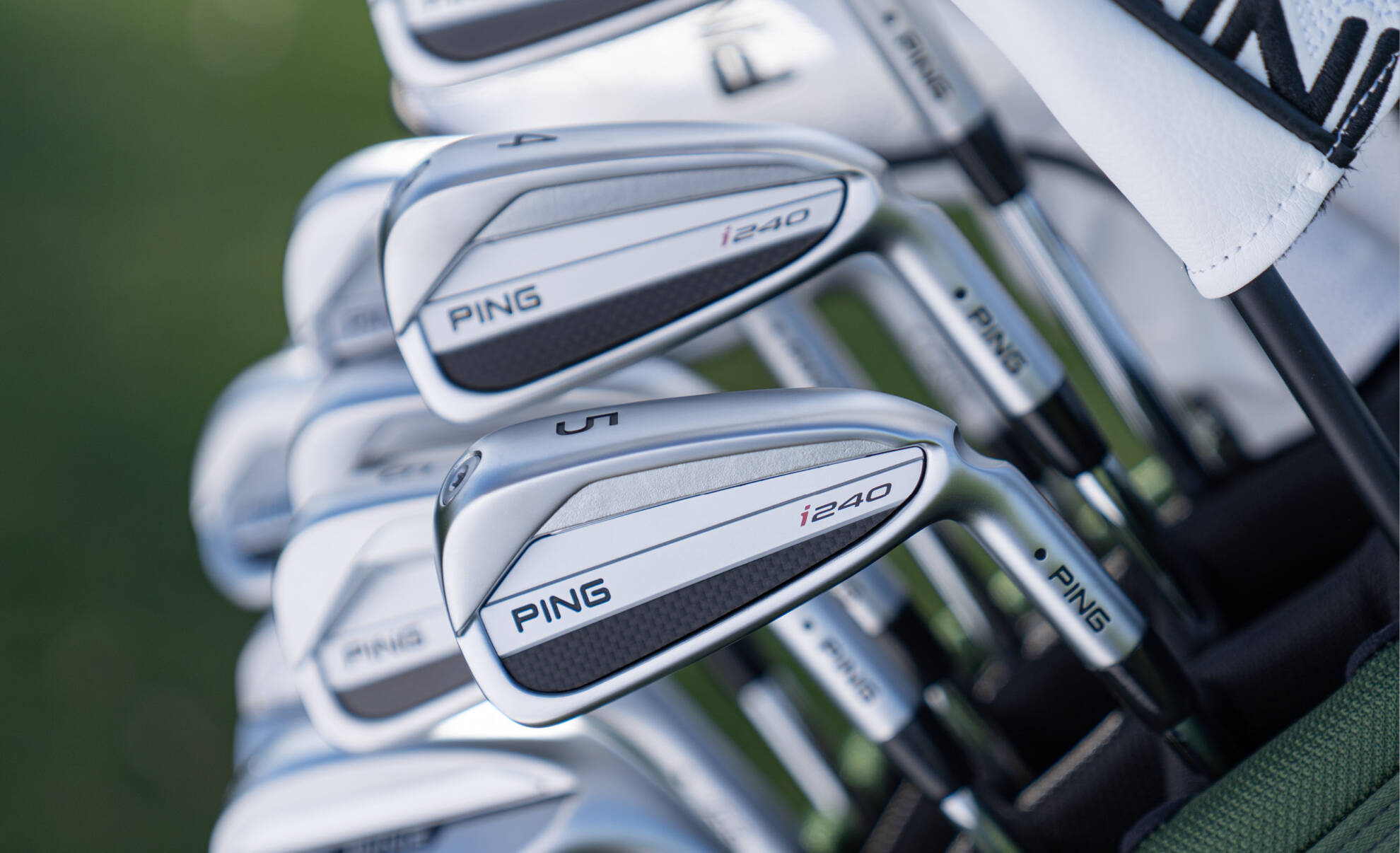
Verdict
If you loved the i210 or i230, the i240 is a worthy successor with more forgiveness and a softer feel. While some may find the cavity design a touch cluttered compared to the old-school clean lines, the performance gains are undeniable.
Pros:
• Excellent forgiveness and consistency
• Soft feel and pleasing sound
• Sensible loft options
Cons:
• Aesthetics may divide
Opinion
For better players who want a workhorse iron that still gives them help on off-centre hits, the i240 deserves a serious look. Just be prepared to spend a bit of time deciding which loft spec fits your game—and whether you can live with the racier cosmetic touches.









